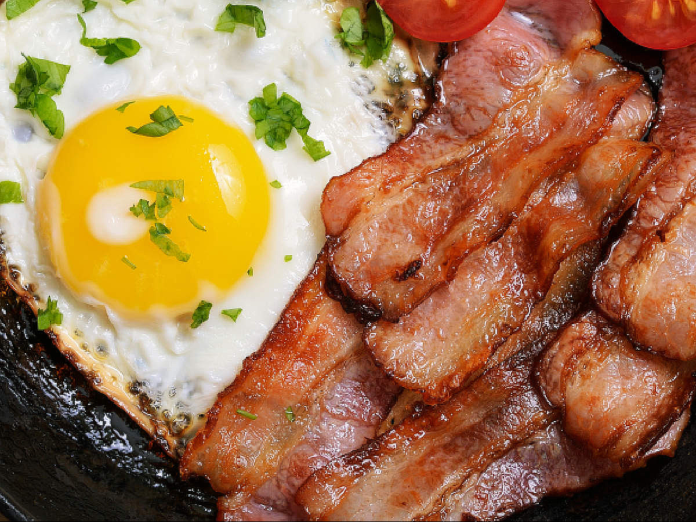Physicians have warned us time and time again to steer clear of fatty foods because of the serious health consequences particularly as you age. So folks have instead leaned towards consuming more sweets, carbs, and processed foods. Well, it’s a new day and many nutritionists have come to realize that fats, including saturated fats, did not deserve to be demonized after all!
Here are 8 fatty foods that are actually healthy for you.
- Avocados are high in fat but it’s monounsaturated fat, which is a good fat to help lower bad cholesterol levels in the blood. Studies have shown that folks who eat avocados tend to weigh less and have less belly fat than those who don’t. Avocados are also super sources of potassium in the diet, even containing 40% more potassium than bananas, a typical high potassium food. Try spreading 1/5 of an avocado to replace mayo on a sandwich.
- Cheese is full of calcium, minerals, protein, Vitamin D, and healthy fats. It contains fatty acids that may also help lower your risk of diabetes: people who eat a lot of high-fat dairy products actually have the lowest incidence of diabetes, according to a 2015 study of 26,930 people in the American Journal of Clinical Nutrition. Those who ate a lot of low-fat dairy products had the highest incidence.
- Full-fat yogurt with live active cultures has probiotics, a type of beneficial bacteria that offers gut health plusses and can even reduce the severity of colds, flu and help lower blood cholesterol levels. Rich in protein and calcium, yogurt can also combat obesity and heart disease.
- Got full-fat milk? Full fat milk may help reduce type 2 diabetes risk. Researchers who are proponents of whole milk agree that fat is needed to absorb Vitamins A and D in milk since they are fat-soluble vitamins. Besides boosting your nutrient intake, milk is a good source of protein, which helps you feel fuller longer, and it provides calcium and phosphorus as well to protect bones.
- Eggs are a great source of protein, yet over the last few years, many folks have been sticking to egg whites only. True, the yolk does contain fat but it also has essential nutrients like choline, a B vitamin, that provides many key functions involving such processes as memory, muscle movement, and heartbeat regulation. A choline-deficient diet, especially for women who are 50-plus, can result in liver and/or muscle damage. New studies have shown that cholesterol in eggs doesn’t affect the cholesterol in the blood, at least not in the majority of people.
- Olive oil can be found in many kitchens because it is not only tasty but also healthy. It has monounsaturated fats (MUFAs) that are healthy dietary fats. MUFAs may help lower heart disease risk, reduce total cholesterol, and may benefit insulin levels and blood sugar control which is great news for those who have type 2 diabetes. FYI, extra virgin olive oil may increase blood levels of serotonin, a hormone associated with satiety.
- Bacon has HEALTHY fats and this is not a misprint! Good old-fashioned full-fat pork has less sodium than the newfound healthy preferred, turkey bacon. Sodium increases blood pressure. Pork has more protein and heart-healthy monounsaturated fatty acids than its poultry counterpart. But word to the wise, don’t make a pig of yourself when eating bacon, a couple of slices should suffice!
- Dark chocolate can help keep your belly flat! It contains magnesium, copper, iron, fiber manganese, and a high amount of pure cocoa butter, a source of digestion-slowing saturated fat called stearic acid. Since dark chocolate takes more time to process, it helps to keep hunger at bay, so you tend to not eat as much. Dark chocolate is also chockfull of antioxidants improving blood flow to the brain that might make you smarter! Studies also show that people who eat dark chocolate 5 or more times per week are less than half as likely to die from heart disease, compared to people who don’t eat dark chocolate.











